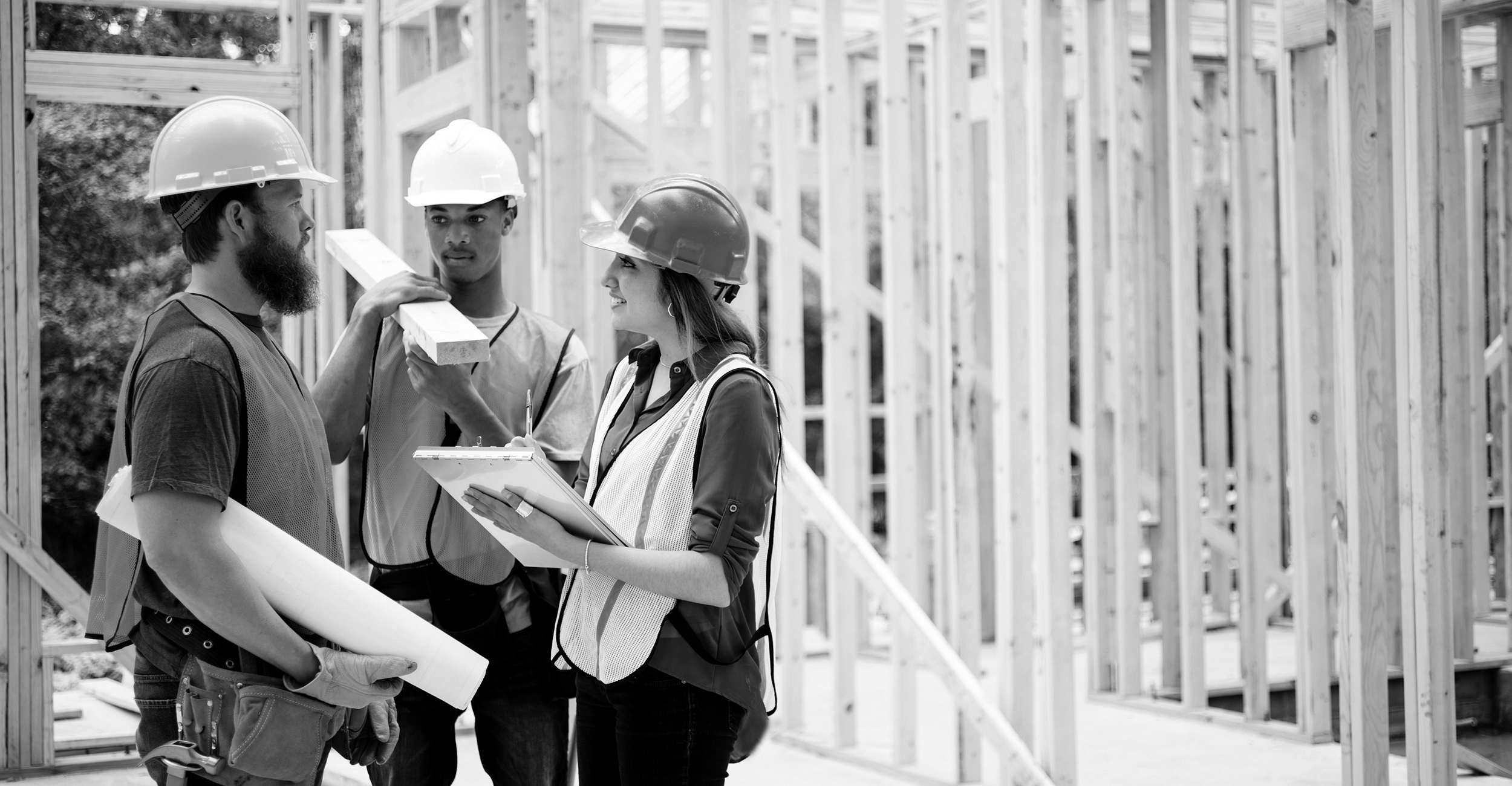Building connections. It’s something all of us do throughout our lives—from the playground and the classroom to the neighborhood and the job-site. In the professional world, building and maintaining connections (often referred to with the term “networking”) is relevant all the time. But now, as the construction industry is booming, the need to sustain existing connections, reconnect, and make new connections is more important than ever. Industry expert Katie Mariani, External Engagement Manager at Builders Mutual, provides valuable insight into the whys and hows of professional connectivity.
Levels of connection
Our industry is, at its base, very personal. Construction professionals build homes, offices, and other commercial spaces where life happens. So, trust is at the foundation of every business relationship. We all prefer doing business with someone we know and are familiar with, because we want to have confidence that certain standards will be met and that work will be done well, correctly, and safely. And trust begets trust. The more trustworthy you are, the more others will trust—and use—your company. Likewise, the more you can trust a partner, vendor, or supplier, the more work you will give them. With so many trades (and multiple companies) involved in every construction job, the right connections can create or inhibit success.
So where, how, and why does connectivity happen? Both personally and professionally, there are circles of connection, and it’s no different within the construction industry.
- COMMUNITY. The community where you do business is the foundational network to solidify. When you do good work for customers, those customers will talk—and when the work is shoddy, they’ll talk even more. So, with every project, it’s vital to pursue excellence in action, attitude, and responsiveness. Because regardless of your connections elsewhere, if you don’t have a solid reputation in your community, you won’t get work.
- PEERS. Although, at some level, your construction peers are competitors, they are also valuable connections. Sustaining positive relationships with other builders and tradespeople in your area means your business will stay top of mind when they need help, could use your advice, or have overflow work to pass along. These connections will also impact your community network—good and bad.
- INDUSTRY. Home Builders Associations, Associated Contractors, trade groups—these industry organizations are vital lifelines for construction professionals at every level. These networks help businesses stay connected with each other, strengthen industry commitment, and gain knowledge across trades and geographic lines. Staying plugged in gives you access to experts and allows you to be an expert for others. HBAs, in particular, are great at bringing together professionals on a more personal level, deepening the connections for greater character awareness.
- SUPPLIERS/VENDORS. If you can’t get the supplies or equipment you need, you can’t finish the job. With so many others contributing to your end product, maintaining strong supplier and vendor relationships is essential. Once you establish the connection, be sure to keep the lines of communication open. At some point, it could mean the difference between calling an 800 number to get a recording and speaking to a personal contact to say, “Can you figure out what’s happening and how to solve it?”
- GOVERNMENT. There are many aspects of the job overseen by government sectors, and these entities—and the people within them—are also connections to be nurtured. These relationships have two simple principles of maintenance: Do good work, and be nice.
Identify and optimize your network.
No one appreciates those “friends” who are always out to use others in some way, with every social interaction becoming a sales-pitch of some kind. But there’s a vast difference between that and cultivating connections for potential mutual influence. You never know how your friends, acquaintances, and friends of acquaintances could impact your life and business. So, identify those within your various spheres of influence, and cultivate those connections—staying ready to ignite when appropriate to give and receive. Along the way, be sure to keep that connectivity organic and stay authentic.
Remember the basics.
Let’s circle back to the foundation of trust and establish some of the fundamentals of creating trusted connections—and being trustworthy. Simply put, always be the best you can be. Others (peers, customers, vendors) will recognize this. When your standards are high and you deliver on them, you’ll attract like-minded people and businesses into your network. Surround yourself with those who embrace the same business ethics and goals. Then, you’ll naturally cultivate the connections you want.
It probably comes as no surprise, but not everyone cares about doing the best job they can. You will differentiate yourself and your business when you do what you say you will—and you do it with excellence. As the industry continues to boom and you’re very busy, don’t rest on that or get so consumed you forget about cultivating your connections. You don’t want to be that person too busy to answer a call from someone who helped you get to where you are. Once you weaken or break a connection, it’s very difficult to repair.
Nurture relationships, build trust, and sustain connectivity. People want to do business with those they can confidently trust with their vision—because that’s what you do as a member of the construction community: You build dreams for people. This is a privilege that should never be taken for granted.




 Find an
Find an